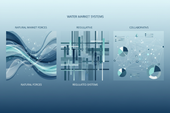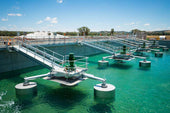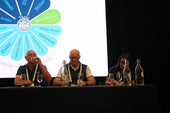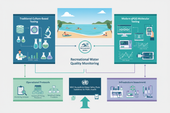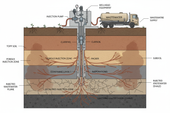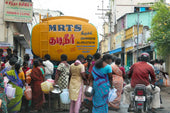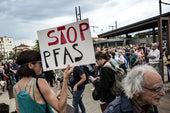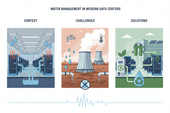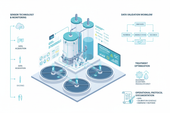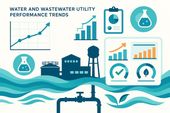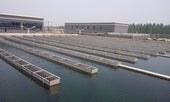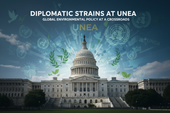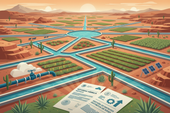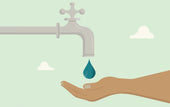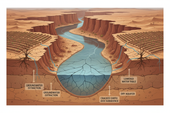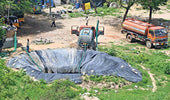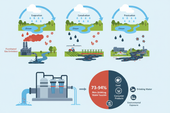
Preventing waste in Europe. Findings from the latest EEA report
The European Environment Agency’s report Preventing Waste in Europe – Progress and Challenges, with a focus on food waste, was published on March 31, 2025. It contains the latest overview of waste prevention activities. The document was prepared based on data and trends collected for the implementation and reporting of the EU Waste Framework Directive.
The results of the analyses are presented in the following areas:
- Waste Prevention in Europe.
- Progress in waste prevention.
- Preventing food waste in Europe.
The report can be downloaded from the European Environment Agency (EEA) website.
Waste prevention in Europe
The Waste Directive prioritizes waste prevention as the most effective strategy for increasing resource efficiency and reducing the environmental impact of waste. It emphasizes the importance of decoupling economic growth from waste generation.
The document requires European Union (EU) member states to implement waste prevention and reduction programs through measures focusing on sustainable consumption, better product design and reducing harmful substances in their composition. In Poland, such requirements are enshrined in Resolution No. 96 of the Council of Ministers of June 12, 2023 on the National Waste Management Program 2028.
Waste prevention is a key component of a closed-loop economy and is essential in combating crises such as climate change, biodiversity loss and pollution prevention. In addition, it protects natural ecosystems, enhances the EU’s strategic autonomy and security of supply of materials.
The European Environment Agency (EEA) is responsible for assessing and reporting progress on EU-wide waste prevention policies under the Waste Directive.
Report Preventing waste in Europe – progress and challenges, with a special focus on food waste
The report consists of two main parts: a chapter outlining general progress in waste prevention and a chapter specifically addressing the issue of food waste prevention.
It reviews the implementation and effectiveness of the Waste Directive in each Member State and at the EU level. It assesses trends in waste generation, progress in decoupling waste generation from economic growth and in the transition to a closed-loop economy. In addition, the report emphasizes food waste, providing an in-depth analysis of progress and challenges in this area. This is particularly important as the revised Waste Directive proposes targets for reducing food waste.
Preventing food waste in Europe
Preventing food waste is not only important for mitigating the effects of climate change, biodiversity loss or pollution prevention, but enhances food security, which is becoming more important in the current geopolitical and climate situation. Reducing food waste reduces greenhouse gas emissions, alleviates pressure on ecosystems, as well as contributes to food security. Indirectly, it has an impact on lowering the water footprint, as we have written about in earlier issues of Water Matters.
The report indicates that measures to prevent food waste are insufficiently integrated with biodiversity and climate strategies. Nevertheless, they are gaining ground across the European Union, with 15 member states implementing strategies that go beyond legal requirements. Most EU countries have set internal targets for reducing food waste. Actions in this regard focus mainly on awareness-raising and education (62 percent), market-based measures (4 percent) and regulatory changes (1 percent).
Knowledge exchange, practice sharing, capacity building for food waste monitoring or data collection is supported by the EU Platform on Food Loss and Wastage and Eionet.
The report indicates that member states should follow the guidelines of the food use hierarchy. Its surplus should be prioritized for distribution to appropriate organizations/persons in need or converted to animal feed instead of recycling. This approach ensures resource efficiency and supports the goals, while prioritizing environmental and ethical outcomes.
Key findings
In connection with the analyses, it is indicated:
- Between 2010 and 2022, the amount of waste generated in the EU increased, but nevertheless divided by the EU’s economic output fell by 13 percent, with most of the reduction taking place between 2020 and 2022.
- Sector trends in waste generation show considerable variation. It is influenced by many policies. Further analysis is therefore needed to identify the specific factors driving the patterns.
- Waste prevention policies are linked to other policies, highlighting the need for a systems approach.
- Waste prevention has significant climate mitigation potential, as it leads to reduced greenhouse gas emissions throughout the product value chain.
- Preventing non-recyclable municipal waste can help achieve recycling targets.
- Action in national waste prevention programs in Europe still relies mostly on soft policy instruments such as voluntary initiatives, agreements and information campaigns.
- Despite the link between waste generation and economic growth, market-based instruments are underutilized, accounting for about 6 percent of all policy instruments.
- EU member states are actively implementing measures to prevent food waste, with 62 percent of source prevention initiatives focusing on awareness raising and education. Market-based activities accounting for about 4 percent and regulatory interventions (1 percent) are less frequently used to support waste prevention at source.
- Waste generation in the waste and water sectors continues to grow regardless of economic trends.
- The impact of the COVID-19 pandemic on consumption and waste patterns was more pronounced than the impact of existing waste prevention efforts – highlighting the need for a more comprehensive and effective policy framework.
- Further analysis is needed to understand the sectoral drivers of the currently observed trends.


